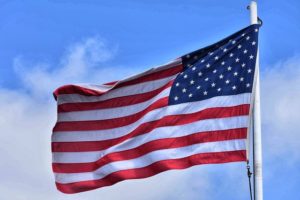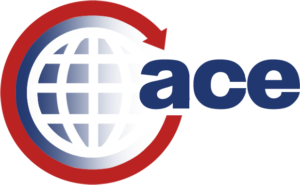Customs Brokers are Vital
Customs Brokers Are Vital to Your Supply Chain

And, of course, we agree.
The involvement of a licensed broker enhances the compliance of import transactions benefiting the government and business.
A Customs Broker will work with importers to collect data necessary to file required entries to CBP, including importer security filing (ISF), which is required 36 hours prior to sailing from origin (on ocean shipments only), actual U.S. Customs entries, which are required at time of entry into the United States, and pertinent information to partner government agencies, such as FDA, USDA, and the like. A Customs Broker will help an importer anywhere from consulting on which HTS number to use to submitting protests on the importer’s behalf. The U.S. Customs Broker guides the importer to be compliant with CBP, and in Scarbrough’s case, should work as a partner striving for a great ISF timeliness rapport or zero errors in Customs submission entries, for example.
Much of this work is done via the ACE platform.
Megan Montgomery writes, “ACE is the single-window system of record for imports into the United States. After more than 10 years and approximately $4 billion dollars in taxpayer money, ACE facilitates any and all import data submitted to the U.S. in conjunction with the clearance of goods. While access to ACE is readily available to all importers, over 95 percent of importers choose to partner with a licensed customs broker to make the submission of the request for an import, referred to as an “entry,” and any follow up as easy and compliant as possible.”
In fact, Scarbrough was one of the twenty first U.S. Customs Brokers in the United States to use ACE.
 As mentioned, Scarbrough was one of 20 U.S. Customs Brokers to pilot the program back in 2009 and was recognized by Acting Assistant Commissioner of the Office of International Trade at the time, Robert DiNucci. Our expertise on ACE extends beyond that of a typical broker. Scarbrough’s Vice President of Operations, Adam Hill is a member of the Automation Sub-Committee under the Customs Committee for the National Customs Brokers and Forwarders Association of America (NCBFAA). He also serves as a member of the US Customs and Border Protection Trade Support Network (TSN), where he provides input on the design and development of modernization projects, like ACE. Mr. Hill is also a member of the eBond committee of the TSN which serves as the trade point of contact with CBP on the design of the new eBond regulations, process, and trade implementation.
As mentioned, Scarbrough was one of 20 U.S. Customs Brokers to pilot the program back in 2009 and was recognized by Acting Assistant Commissioner of the Office of International Trade at the time, Robert DiNucci. Our expertise on ACE extends beyond that of a typical broker. Scarbrough’s Vice President of Operations, Adam Hill is a member of the Automation Sub-Committee under the Customs Committee for the National Customs Brokers and Forwarders Association of America (NCBFAA). He also serves as a member of the US Customs and Border Protection Trade Support Network (TSN), where he provides input on the design and development of modernization projects, like ACE. Mr. Hill is also a member of the eBond committee of the TSN which serves as the trade point of contact with CBP on the design of the new eBond regulations, process, and trade implementation.
It is suggested that all importers and exporters obtain an ACE account. Applying for an ACE portal is free!
It allows the importer or exporter to view information, export to excel for reports, and creates a completely paperless environment for brokers to submit data. To find out more about ACE, don’t hesitate to contact us.
Be Careful when Assuming
In the same American Shipper article mentioned, Megan Montgomery writes, “The United States recently raised the level of value that an entry must hit in order to be subject to customs duties, referred to as the “de minimus” value and outlined in section 321 of the U.S. customs code, from $200 to $800, the highest in the world. In doing so, the U.S. significantly increased the volume of trade not processed through the ACE entry and PGA targeting systems.”
She goes on to state,
“Any time any person or company causes a package to cross the U.S. border and enter the U.S. stream of commerce, that person takes on the role and responsibility of an importer and, as a result, the charge of maintaining appropriate compliance for that import with the laws, rules, and regulations of the U.S. Ignorance is not an excuse in this area, and anyone who is donning the hat of importer should thoroughly understand the laws governing that role. One way to quickly and easily achieve that objective is to partner with a customs broker on your import.”
Megan Montgomery is executive vice president of the National Customs Brokers & Forwarders Association of America, Inc. (NCBFAA). Headquartered in Washington, DC, the NCBFAA represents nearly 940 member freight forwarders, customs brokers, ocean transportation intermediaries (OTIs), NVOCCs and air cargo agents serving more than 250,000 U.S. importers and exporters.
Subscribe to American Shipper for related content.


